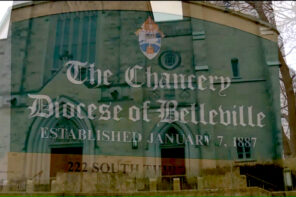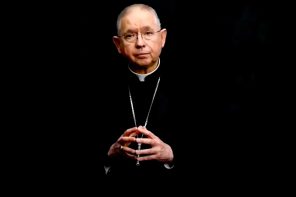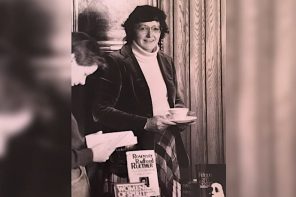Chuck Currie objects to Rep. Lynn Woolsey’s call to have the United States Conference of Catholic Bishops’ (USCCB) tax-exempt status investigated because of its advocacy for the Stupak-Pitts amendment to the House health care bill. Currie says Woolsey’s proposal infringes on religious freedom.
It’s hard imagine any religious group on the right or left coming out in favor of that kind of restriction. Similar arguments have been about the LDS Church because of its politicking against gay marriage in California and the USCCB in Maine. But as Currie notes, there are First Amendment implications to restricting issue advocacy.
But churches and their affiliated organizations do receive special privileges from the government, and the case of the intervention of the USCCB in health care reform legislation highlights how they are not only exempted from paying taxes, but also from the transparency rules other tax-exempt organizations are required to follow.
Woolsey recognizes that the IRS restricts churches’ ability to endorse candidates, but permits issue advocacy. In the Politico, she wrote:
The role the bishops played in the pushing the Stupak amendment, which unfairly restricts access for low-income women to insurance coverage for abortions, was more than mere advocacy.
They seemed to dictate the finer points of the amendment, and managed to bully members of Congress to vote for added restrictions on a perfectly legal surgical procedure.
And this political effort was subsidized by taxpayers, since the Council enjoys tax-exempt status.
Tax-exempt organizations, including churches, are barred from endorsing political candidates. But they can lobby, as the USCCB does (it even has its own government relations department, as do other religious denominations). Yet while corporations, individuals, and secular non-profits who lobby the government are required to file publicly available forms under the Lobbying Disclosure Act, a church or “its integrated auxiliary, a convention or association of churches and religious orders” are not. If they hire an outside firm to lobby on their behalf, that firm must file under the LDA, disclosing the pieces of legislation lobbied on, the names of the lobbyists, the amount of money spent on lobbying, and other details. But if the church does its own lobbying — as with an in-house government relations department — it is exempt from the LDA.
Moreover, the IRS rules exempting houses of worship from filing tax returns further shields them from transparency requirements. Although tax-exempt organizations may lobby, they must limit it to a certain proportion of their time and revenue, and document this on their tax returns and other documents. But because houses of worship are exempted from filing tax returns, again, exactly how many resources they devote to lobbying is shielded from public view.
The USCCB can legally lobby, and it’s unlikely if not impossible that the IRS rules on that will change. “Legislators tremble in fear at the very thought of being seen as anti-religious,” says Rob Boston of Americans United for the Separation of Church and State. Given the outcry about the USCCB’s role in the Stupak-Pitts amendment, though, the public might very well begin asking more questions about the special privileges granted to houses of worship.
The USCCB was complaining about taxpayer dollars being used for something it finds morally objectionable. Yet taxpayers also subsidize the USCCB, through its tax exemption (not to mention government grants to various Catholic charities). At least the public is owed some openness about what is done with that significant financial benefit.




